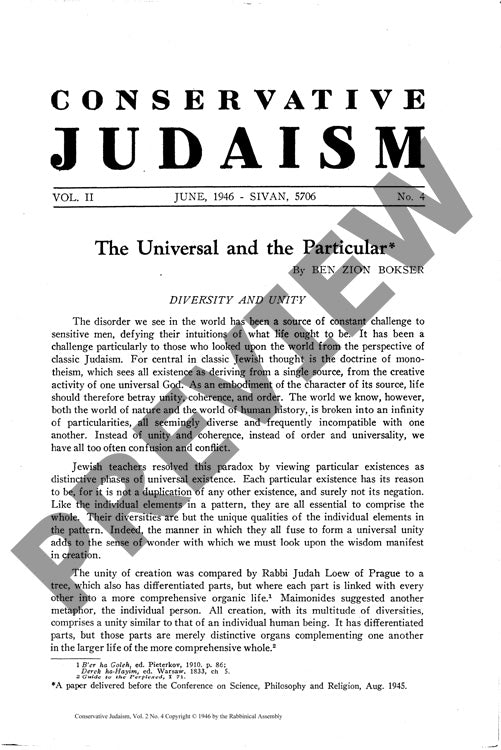The Universal and the Particular
Couldn't load pickup availability
How can divine unity coexist with the observable diversity and conflict that characterize our world? Jewish philosophers across centuries have wrestled with this fundamental paradox between monotheistic universalism and the multiplicity of natural and human existence. Through analysis of classical Jewish philosophical sources, including works by Maimonides, Rabbi Judah Loew, and Rabbi Abraham Isaac Kook, a resolution emerges: particular existences serve as distinctive phases of universal existence rather than contradictions to it. Textual analysis of rabbinic and medieval Jewish philosophical literature reveals how diversity functions within larger unified patterns, while identifying two primary obstacles to recognizing this unity: falsification through unintegrated particularity, where specialized knowledge remains isolated, and falsification through oversimplified universalism that rejects valuable particularities. Authentic universality requires integrating legitimate particularities rather than eliminating them. Cultural specialization and differentiation, when properly integrated through processes of cultural conciliation, become necessary stepping-stones toward truly universal culture. Creating this authentic universal culture demands societies that balance freedom with community, enabling continuous dialogue between diverse perspectives. This dialectical process allows humanity to transcend fragmentary truths toward more comprehensive understanding, suggesting that apparent disorder stems from limited human perspectives rather than inherent defects in creation itself.

More Information
-
Physical Description
-
Publication Information
Published 1946
ISBN
-
Publication Credits
Ben Bokser

